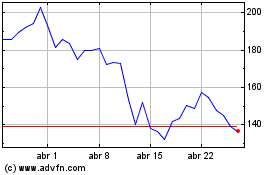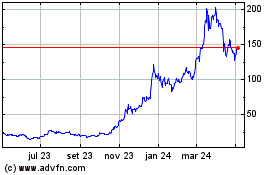Bitcoin rises as dollar weakens after weak US job data
On November 1, Bitcoin (COIN:BTCUSD) hit an intraday low of
$68,750.37 but rebounded to $69,905, marking a -0.4% drop in the
last 24 hours. This recovery followed US employment data showing
only 12,000 new jobs in October, far below the expected 106,000,
weakening the dollar and increasing Federal Reserve rate cut
expectations.
BTC/USD reached a high of $71,620 as analysts like Michaël van
de Poppe indicate a slowing labor market may signal an economic
reversal, favoring Bitcoin.
The dip below $69K was attributed to various factors, including
profit-taking after a recent rally, reduced odds of a Trump victory
on Polymarket, and the influence of tech earnings. Tensions between
Iran and Israel and rising UK bond yields after the new budget also
impacted the market.
Despite this, BTC’s October close suggests an optimistic
outlook. Institutional Bitcoin adoption is growing, particularly
with the launch of spot Bitcoin ETFs in the US. Some countries are
also beginning to buy Bitcoin, indicating global support. With
initial regulatory risks largely overcome, the Bitcoin network is
becoming more secure and mature, demonstrating continued growth and
innovation, including the advancement of the Lightning protocol for
fast and secure transactions.
Institutional investment resurgence in Solana in Q3
In Q3 2024, institutional interest in Solana’s native blockchain
applications rebounded, with 29 DApps raising $173 million — a 54%
increase from the previous quarter. Despite a 37% decline in
funding rounds, this marked the highest Solana investment since
2022. Additionally, the number of daily paying users grew, boosting
the network’s total revenue, which surpassed Ethereum in
October.
Tron achieves second-highest monthly revenue and TRX annual rise
The Tron network reached a financial milestone, with its native
token (COIN:TRXUSD) reaching $0.17, a 55% annual increase,
solidifying its position among the top 10 digital assets. In
October, Tron recorded $205 million in revenue, its second-highest
monthly mark, driven by DeFi, memecoins, and NFT expansion. Tron is
also the second-largest stablecoin blockchain, with a 35.2% market
share and high demand in emerging markets, attracted by the
network’s low fees and fast transactions.
Society DAO: TON’s new decentralized governance model
The TON Foundation launched the Society DAO, a community
governance model to decentralize decision-making, resource
allocation, and project management within the TON ecosystem.
Society DAO allows community members to propose and execute
strategic initiatives aligned with network growth, promoting
transparency and open participation. Beyond autonomy, this model
aims to strengthen TON’s stability, scalability, and real-world
expansion, with strategic guidelines set to be released in
2025.
Polkadot 2.0 updates boost onchain performance and governance
Polkadot 2.0 (COIN:DOTUSD) promises major improvements. In May,
Asynchronous Backing improved block processing efficiency, and
Agile Coretime, launched in September, cut costs by enabling
on-demand block space purchases. The final expansion with Elastic
Scaling, expected by late 2024 or early 2025, will allow for higher
transaction volumes without compromising security. OpenGov onchain
governance and the rise of DAOs highlight Polkadot’s commitment to
democratic governance and Web3 ecosystem innovation.
Solana’s Sonic reaches $50 million in staking with strategic
restaking partnership
Solana’s Layer 2 network, Sonic, reached $50 million in staked
Solana tokens (COIN:SOLUSD) through partnerships with Solayer and
Adrastea, expanding the staking and restaking sector. This
partnership strengthens Sonic as the largest Actively Validated
Service (AVS) on Solayer, marking Solana’s potential to replicate
Ethereum’s liquid staking success. According to Chris Zhu, Sonic’s
founder, Solana’s decentralized solution innovations, combined with
the growth of protocols like Jito and Fragmetric, position the
network for increased decentralization and application
complexity.
SingularityDAO approves merger with Cogito Finance and SelfKey to
form Singularity Finance
SingularityDAO (COIN:SDAOUSD) finalized a vote approving a
merger with Cogito Finance and SelfKey (COIN:KEYUSD), creating
Singularity Finance, a Layer 2 to tokenize the AI economy. With
94.78% of SDAO holders in favor, the merger aims to combine
technologies to foster innovation in DeFi and AI. Singularity
Finance will offer services such as real-world asset tokenization
and onchain identity management, led by Ben Goertzel, Cloris Chen,
and Mario Casiraghi, positioning itself as a pioneer at the
intersection of AI and decentralized finance.
Mt. Gox transfers 500 BTC to unknown wallets; creditors await
reimbursement
The Mt. Gox estate transferred 500 BTC (around $35.04 million)
to two unknown wallets, according to Arkham. This is the first BTC
movement since September. The nature of the transfers is unclear,
but similar transactions have preceded creditor reimbursements via
exchanges like Bitstamp and Kraken. Mt. Gox still holds 44,905 BTC
(approximately $3.1 billion), with a new payment deadline extended
to October 2025.
Tether launches Dirham stablecoin on TON blockchain
At the TON Gateway event in Dubai, Tether (COIN:USDTUSD)
announced the launch of its stablecoin pegged to the United Arab
Emirates Dirham on The Open Network (COIN:TONCOINUSD) blockchain.
Partnered with the Phoenix Group and Green Acorn Investments, the
stablecoin will be fully backed by local liquid reserves. Manager
Alessandro Giori highlighted the rapid growth of USDT on TON,
reaching 1 billion tokens in six months, with integration across
over 100 crypto platforms.
Paxos launches USDG stablecoin aligned with Singapore rules
Paxos launched the Global Dollar (USDG), a dollar-pegged
stablecoin regulated to operate under Singapore’s forthcoming
stablecoin rules. The stablecoin is issued by Paxos Digital
Singapore and will have cash management and custody support from
DBS, the largest local bank. Approved by the Monetary Authority of
Singapore (MAS), USDG initially operates on the Ethereum
blockchain, with plans for other networks.
UBS launches tokenized fund on Ethereum blockchain for
institutional investors
UBS Asset Management, with a Q4 2023 portfolio of $5.7 trillion,
launched its first tokenized fund, “uMINT,” on the Ethereum
blockchain to broaden client access to innovative investments. This
fund offers exposure to high-quality money market instruments
within a conservative risk management structure. According to
Thomas Kaegi, the product reflects the growing interest in
tokenized assets, aligning with the “UBS Tokenize” initiative.
Bitcoin mining revenue and profit drop in October, but transaction
fees provide relief
Bitcoin mining’s daily revenue and gross profit fell for the
fourth consecutive month in October, with miners earning an average
of $41,800 per exahash (EH/s), 1% lower than in September,
according to JPMorgan. Gross profitability per block dropped 2%,
reaching recent historical lows. However, transaction fees
accounted for up to 60% of rewards at the month’s end, offsetting
some losses. The average monthly hash rate hit a record of 702
EH/s, with a 62% annual increase. The market value of monitored
miners grew by 14%, reaching $23.9 billion.
CleanSpark expands mining with GRIID acquisition, plans 400 MW in
Tennessee
CleanSpark (NASDAQ:CLSK) acquired GRIID Infrastructure for $155
million, strengthening its plan to increase Bitcoin mining capacity
to 400 megawatts. CEO Zach Bradford stated that the acquisition,
approved by shareholders, provides operational flexibility with
expansion in the Tennessee Valley Authority and geographic
diversification. With GRIID’s team integration and local support,
CleanSpark plans new facilities and a 22% hash rate increase.
Despite a 12% share drop due to the market downturn, the company
sees significant advantages in its Tennessee expansion.
Hack on M2 exchange results in $13.7 million loss
The M2 exchange, based in the UAE, was hacked on October 31,
resulting in a $13.7 million loss. Assets were moved to a
suspicious address across Bitcoin, Ethereum, and Solana networks.
M2 stated that affected funds were restored and its security was
strengthened. Cyvers reported that CeFi platform attacks have grown
nearly 1,000% this year, exceeding $2 billion in losses, while
advising advanced security measures for exchanges.
Federal Reserve suggests Bitcoin could prevent permanent public
deficits
A Federal Reserve Bank of Minneapolis paper discusses how
Bitcoin, by protecting asset value, could limit the US government’s
ability to sustain perpetual public deficits. This scenario
concerns lawmakers who prefer flexibility to increase spending
during crises. The paper explores the idea of banning Bitcoin to
preserve this fiscal freedom, but experts warn such a restriction
would be drastic and challenging. The study highlights Bitcoin’s
potential as a “pressure valve” for those seeking to protect their
purchasing power against currency devaluation policies.
Solana (COIN:SOLUSD)
Gráfico Histórico do Ativo
De Dez 2024 até Jan 2025

Solana (COIN:SOLUSD)
Gráfico Histórico do Ativo
De Jan 2024 até Jan 2025
